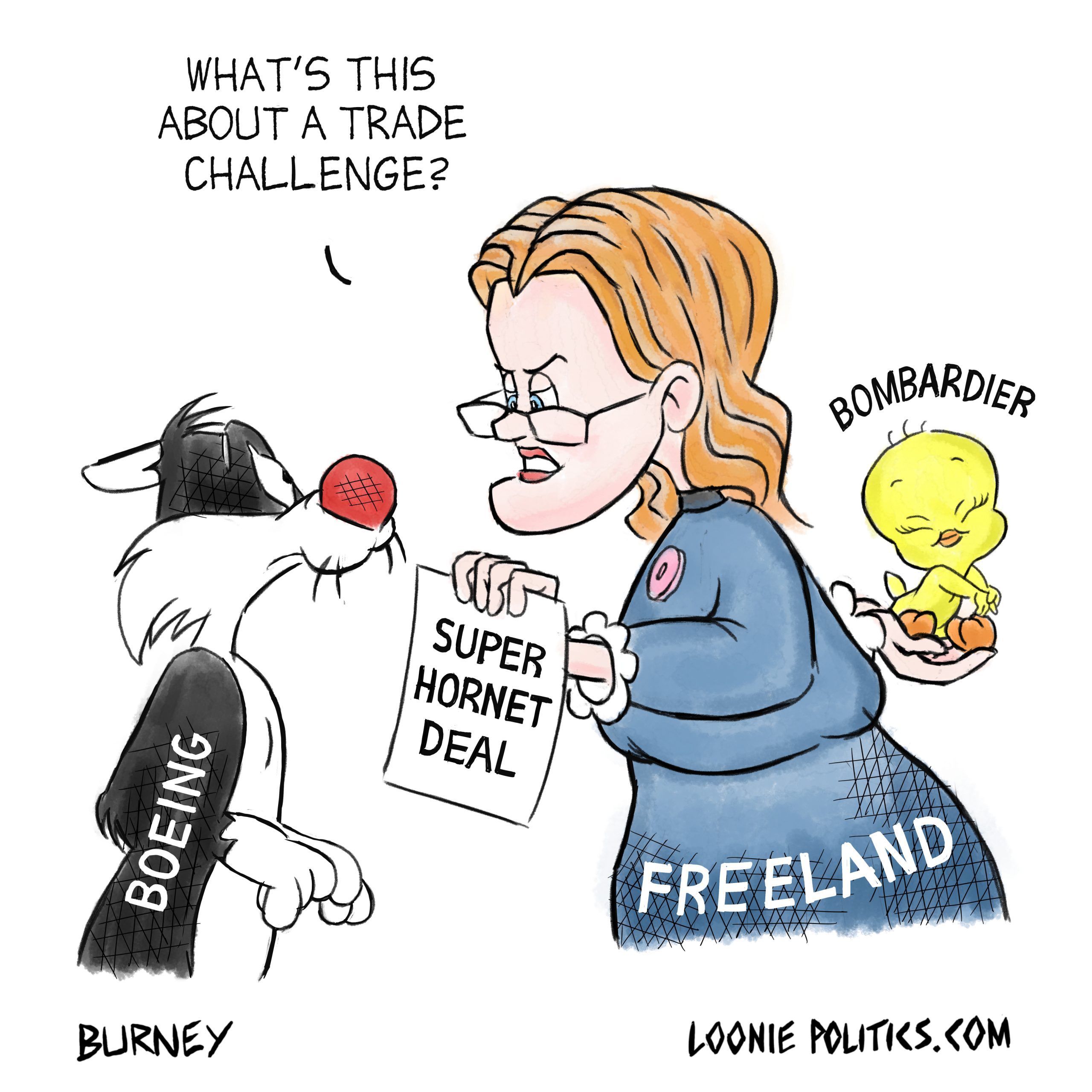It's coming up on a pretty dangerous time for Bombardier aerospace. The plane-making division of the Québec company is about to find out whether it will be crushed by the U.S. government's significant might.
You see, Boeing has filed a formal decree of sore feelings with the U.S. commerce department that Bombardier is selling its C Series planes in the U.S. below cost. Further, it's able to do this because the Québec and Canadian governments have subsidized the company.
Next week a report will be delivered by the commerce department outlining whether Bombardier should be sacked with sanctions, like border tariffs, for undercutting an American company.
This is all more than a little rich.
Boeing is as heavily subsidized as any other aircraft maker, maybe even more so. Not all of it is in straight cash, though. Much of it is less tangible, or at least not an explicit cash handout.
But consider this: The single most famous plane in the world is a Boeing. No marketing campaign in the world could equal to the fact the U.S. president's personal jumbo jet, Air Force One, is a Boeing 747.
Then there are the billions, and billions of dollars in contracts with the American government. Not only do they build commercial jets, but they also dabble in warplanes and spaceships. (You don't really think Boeing is footing the bill for the research that goes into designing giant rockets for NASA, do you?)
But it goes further than that, of course. The American government isn't just picking up the slack in marketing and research, it has a huge part in the plane manufacturer's sales team, too.
Take, for example, this 2011 New York Times report, which details how U.S. diplomats do a lot of the heavy lifting when Boeing's trying to sell its planes overseas:
State Department and Boeing officials, in interviews [in December 2010], acknowledged the important role the United States government plays in helping them sell commercial airplanes, despite a trade agreement signed by the United States and European leaders three decades ago intended to remove international politics from the process.
And it wasn't that long ago that Boeing was fined for, let's see here… Ah, of course, unfair trading practices because of government subsidies. The government of Washington state paid Boeing an imperial butt-load of cash to build its new manufacturing plants in the state. That offers the company the ability to build its factories at a lower cost thanks to a subsidy, which happens all the time. The wrinkle that really cost Boeing was that as a condition for receiving the money, the company had to assemble its 777x planes in Washington.
What I'm getting at here is Boeing isn't trying to level any particular playing field here. Really, they're trying to do is use another arm of the U.S. government they have sway over as a cudgel to prop up its own business. This time to crush foreign competition.
Which is why you see our government threatening to cancel plans to buy a bunch of Boeing Super Hornet fighter aircraft. They're intended as a stopgap while we decide whether we want the F-35 or some other aircraft to make up our permanent fleet.
Along with this stick, the government was hoping to carrot Boeing into some kind of negotiated settlement with Bombardier before the U.S. government intervened. But Boeing walked away from those talks.
But there is, of course, a further layer of absurdity. The C Series is assembled here in Canada, by a Canadian owned company, but it's not just made here in Canada. For example, the wings are made at a Bombardier plant in Northern Ireland. But the fun starts with the engines, which are made by the American company Pratt and Whitney. If the U.S. government should decide to punish a Canadian company to protect an American one, they would also be punishing an American company.
So now British Prime Minister Theresa May is stepping in to lend her support to the company and its Northern Irish plant, by bringing British diplomacy to bear against the U.S. government. Bombardier is going to be one of the central features of May's visit to Ottawa this week.
(I should note at this point that my wife works for the British Foreign Service, and receives a salary from Her Majesty's Government. Plus we live in Québec, meaning we have a literal stake in Bombardier. Make of this what you will.)
So here we are, in the throes of a multi-national diplomatic spat over whether a heavily subsidized airplane manufacturer, through its subsidies, is hurting the business of another heavily subsidized airline manufacturer.
The entire situation is a farce, with the American company playing the most absurd role. That multiple governments have been drawn into this to in some way defend free trade and markets is ridiculous.
Boeing should pound the sand their glass house is made out of.









